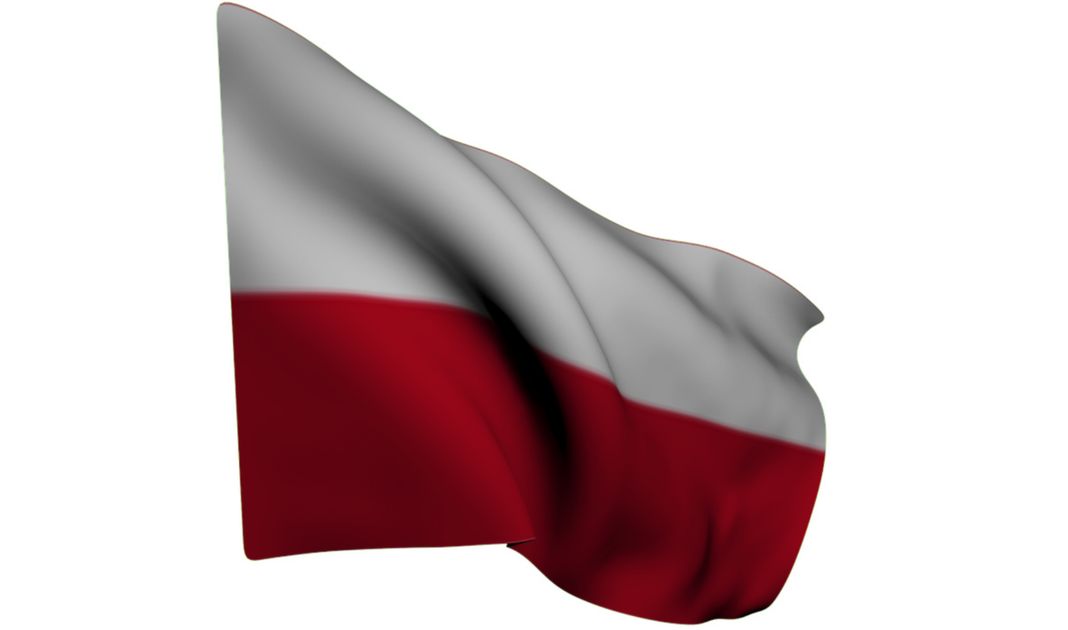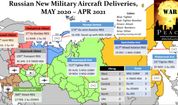“Gente Polonus natione Europae?” – the voice of one of the subscribers. Part 1

(Source: pixabay.com)
Recently, the issue of nationality selection in Poland’s ongoing National Census of Population and Housing has become a topic that warms up some commentators from various backgrounds. This issue will probably become an even hotter journalistic topic when the final results of this year’s census are published. For the record: one of the questions in the personal questionnaire is as follows: “What is your nationality? (Nationality should be understood as national or ethnic affiliation – not to be confused with citizenship)”. You can select one of the nationalities available in the drop-down list – with Polish at the forefront – or indicate another one. The next question is: “Do you also feel affiliation to another nation or ethnic community?” There, you can also select your nationality from a wide drop-down list or enter your own answer. So far, the topic of nationality in the census has appeared in the media most often in relation to the issue of Silesian autonomy – in 2011, 436,000 people indicated Silesian nationality as the first identification, and 411,000 as the second identification. There are many indications that in 2021, an even more turbulent issue may turn out to be “European nationality” – not available in the list, but – as it seems – quite commonly added by respondents.
The question of a potential European identity seems to polarise people from diverse backgrounds. Even on the left, which is often highly internationalist, there are voices that such a choice shows naivety, infantilism and – especially in the case of resignation from choosing Polish nationality and entering only European nationality or the additional selection of local nationality – proves oikophobia and conscious self-exclusion from the community. Naturally, there are also voices that entering European nationality is dictated by the will to manifest opposition to the ideology of the ruling political party or contempt for its supporters. However, it is likely that if the number of such indications reaches a statistically significant level, it will become a media issue and even bigger guns will be called in by some politicians and commentators associated with the right – in a wide spectrum of accusations orbiting terms such as “national treason”, “Polish only by name population” or “Brussels servants”.
It is worth starting with establishing the essential point – the question about the sense of national identity (like the next question about faith) from the respondent’s point of view is a question of subjective feelings and emotions, goes beyond the rational analysis of external acts of belonging – and if we separate cases of conscious (on the part of the respondent and not attributed to him by others) “trolling”, the answer to this question cannot be correct or incorrect, but only frank or disingenuous.
At this point I would like to make a personal auto-da-fé: I am one of those who chose the category “other (specify it)” and entered “European”. I made this choice when asked about the additional feeling of belonging to another nation, but I also considered the reverse configuration: entering European nationality first, and Polish nationality in the question about a possible second identification. In the following text, I would like to explain the reasons for adding European nationality, placing this issue also in a broad geopolitical and cultural context.
First of all, European nationality is not a synonym for “European Union” nationality, understood as the default nationality of a citizen of the European Union. In fact, personally, I perceive it more like in Czesław Miłosz’s declaration about being a citizen of the Grand Duchy of Lithuania. (Zbigniew Herbert harshly, but rightly noticed the convenience of being a citizen of a non-existent country.)
Europe as a political nation, closer to Ernest Gellner’s concept, may only emerge in future. The idea of building “national identities” was a complex project involving common education, popularisation of national languages, history, “national culture”, map images and competition between states. The nation as the universal basis for building its own identity and the idea of the nation state itself – are products of modernity, related to the legacy of the Enlightenment, the Great French Revolution, and the Springtime of Nations. Thinking in terms of the nation-state is therefore by no means an expression of “conservatism” or “attachment to tradition” – it is not “reactionary”, but it is a continuation of this revolution. Historically, nation-states played an important role in the emancipation process – they could be carriers of the slogans of freedom, equality and fraternity, the ideals of self-determination, democracy, civil society, and the abolition of state and class divisions. It was in the nation states that workers’ movements developed and social democracy could come to power after World War II. Today, however, the continuation of the idea of progress, the same process in which nation-states played such an important role, requires a new vehicle – a community based not on ethnos, which sometimes serves to build divisions, emphasise differences and celebrate one’s own supremacy, but on a common cultural identity (without having to give up of everything that makes up the “national culture”, but only by transferring the central point of reference one step higher), which makes it possible to build an European civilisation state.
The history and causes of the emergence of the European Union are well known; Europe, ruined by war experiences, sought economic recovery in peaceful conditions, and the leaven of the future Union was the European Coal and Steel Community, intended to prevent a potential economic war. It is also worth emphasising the importance of the idea of a united Europe for the post-war strategy of the United States – maintaining the American Bretton Woods system in the world, based on a fixed exchange rate towards dollar, required – as shock absorbers – strong local currencies supported by powerful heavy industry. The best suited for this role were Germany and Japan, still having a powerful industrial base, whose attractiveness as potential American “junior partners” was additionally increased by their not-too-distant defeat in the war with the United States, as a consequence of which American politicians influenced the countries after the war. New constitutions and powerful US military bases were established in the territories of Germany and Japan. Hence, the Americans helped with the post-war reconstruction and rehabilitation of these countries and supported the cancellation of German debts in Europe. The Americans also needed the industrial revival of Germany in order to contain the Soviets in Europe. However, this plan also required markets capable of buying their goods and absorbing trade surpluses – to this end, Washington supported the integration process in Europe, which was the beginning of the future European Union.
Nowadays, at the end of the geopolitical pause, when the stability of the post-war constructivist world order is getting imbalanced, and there is more and more talk about a new cold war between two powers (the former hegemon, the United States, and China on an upward curve), the issue of Europe’s strategic independence and its chances of gaining the status of a separate pole of power. The construct of a consolidating Europe is sometimes referred to as the “necessary empire”, on the other hand, it also finds its strong opponents – both among non-European powers and politicians (which should not be surprising), and among European countries with a national orientation, whose banners read independence from Brussels and the primacy of state law over the EU law. The words of the Polish president about the European Union as “an imaginary community from which little comes to us” are symptomatic. The consequence of this is an exhortation to hard execution of one’s own, narrowly understood, national interests, but in fact – due to the complexity of today’s economic ties – constituting a trap. In the case of Poland, this additionally intensifies the sense of political isolation within Europe, in a situation where it is not possible to completely transform one’s own economic model in the semi-peripheries of the economic world-system (according to Immanuel Wallerstein), without affecting the changes taking place within its core. Moreover, such thinking becomes a form of a self-fulfilling prophecy, in which the lack of faith in the possibility of a true European community becomes the first factor that actually excludes it. Indeed, the European Union – once referred to as “an economic giant, a political dwarf, and a military worm” – may not survive in its current formula. Therefore, when declaring European nationality, it is worth being aware of how profound are the reforms that may be required and to actively support such a policy that may contribute to these changes. The European Community has been constructed as a forum of states which, with the help of common institutions, negotiates an acceptable framework of interests and the scope of cooperation. For this purpose, the leaders of the strongest European countries sometimes have to convince their (and therefore national – it was they who brought them to power, also at the European level) voters to make certain concessions to the weaker states. It is often emphasised that the European Union is moving forward “from crisis to crisis” and moments such as the economic crisis in 2008, the refugee crisis or the coronavirus pandemic are a challenge for the Union, but also an opportunity to take a step forward. Recently, the hopes of “Euro-enthusiasts” were raised by the EU Reconstruction Fund related to COVID-19 – some even see this event as a possible “Hamiltonian moment” (in 1790, under an agreement of the Secretary of the Treasury, Alexander Hamilton, and the future president, then secretary of state, Thomas Jefferson in the United States, it was decided to communitise the debts of individual states and strengthen the power of the federal government).
To some extent, it is natural that groundbreaking situations require groundbreaking actions, but great strategic and development projects and the consistent implementation of long-term policies should not face decision paralysis on a daily basis and be forced directly only by urgent external factors. History shows that confederations were usually unstable – they transformed into federations or broke up when the community of interests loosened or common threats decreased. Ultimately breaking the confederal spirit of the European Union will require going a step further – European politicians accountable to European voters, making difficult decisions that benefit the European community, even if they do not win the support of their national voters. A necessary step for the emergence of a European political nation would be to make the governing process of the European Union transparent, open and democratic – with real trans-European elections to the European Parliament, involving pan-European parties, possibly also the democratically elected president of the Commission and the European Council. This would allow Europeans to regain their sense of influence and agency, increasing their level of identification with a united Europe and its politics.
To make it effective, an economic transformation is necessary that allows developing countries to catch up in economic terms, so that debtor countries do not just have to adapt to the policies created by creditor countries. Economic integration makes states more dependent on each other. Hence the need for collective political action to ensure that mutual benefits outweigh the harms. When the economic globalisation exceeds the political one, globalisation processes cease to serve societies and begin to serve only the architects of this globalisation. Without a fiscal union and a minister of finance, the maintaining of the European currency may be impossible. Among the indicated proposals, incl. by Joseph Stiglitz, to repair the eurozone, what stands out is the need to introduce a real banking union, Eurobonds, a solidarity fund for stabilisation, possibly also taxation of current account surpluses, and finally expansion of the competences of the European Central Bank, so that it starts to focus, apart from controlling inflation, also on ensuring economic stability, growth and fostering full employment. In order for economic integration to benefit everyone, however, it must be preceded by strong political integration. It is political integration that allows some of the benefits to be transferred from those who gain from it, to those who have lost; only then can everyone actually benefit from integration. Therefore, economic integration must follow political integration, not the other way round. The implementation of the federation idea would also have to start with taxing citizens and creating a budget not at the level of 1% of national income, but significantly higher (as pointed out by, i.a., Jan Zielonka). Any feasible and worthy of support project of an European power must involve the transfer of funds on an unprecedented scale; inducing the richest to stop only benefiting from economic integration, without bearing the real costs of modernising poorer countries and sustaining development disparities; power must follow taking responsibility for the real reduction of differences in living standards. Without it, the pan-European project will turn into a neo-colonial economic project of the European core. The free movement of goods and money must go hand in hand with a surplus relocation mechanism, and a common interest rate and exchange rate must go hand in hand with shared prosperity. At this point, it is also worth pointing out the irrationality of the popular fear of the United States of Europe as the implementation of German hegemony in Europe – true federalism is inherently anti-hegemonic. What currently strengthens the position of Germany or France is the weakness of the Community institutions, which emphasise the role of the leaders of individual countries, thanks to which the strongest countries gain the advantage.
The view that Europe must remain diverse (implicitly politically fragmented) and internally competitive, because this is what ensured its global success, is wrong. It should be remembered that European world domination, from the perspective of its long duration, was a short (less than 200 years old) historical aberration. From this perspective, China, whose economy in 1820 accounted for 30% of the world economy, beating the results of past and contemporary leaders, is simply returning to its place, just as a marginalising Europe can return to its previous place. The factors that contributed to European success at that time later contributed to the end of European domination and its bleeding out in the world wars, which made it possible for the US to take over the baton of world domination. One hundred years have passed since the beginning of the end of world European domination. Players today aspiring to rule or co-rule the world on a global or regional scale – China, India, Brazil, Iran, Turkey – were weak at that time and struggled with serious problems of an external and internal nature.
For many, the language barrier remains the main obstacle to closing a sense of common identity on a political level: it prevents the free movement of people to be on the United States level (in 2017, the mobility of workers within the EU was only 3%), as well as taking up work without being attached to the place. That is why the European project must be based on solidarity and social security to a much greater extent than in the US. In the linguistically, culturally and ethnically diverse European landscape, the marginalisation, depopulation and brain drain of countries that do not constitute the “hard core” of the European Union must not be allowed. Europe must draw strength from its cultural diversity – within the framework of a civilisation community – caring for the sustainable development of the entire area, and at the same time building a community of experiences and direct contacts, which is a key in the formulation of any identity. The capitalist socio-economic system of the last hundred years based on a fixed percentage of the rate of return on capital and constant economic growth is coming to an end, similarly to the current world order – if only because unlimited development is not possible on a planet with limited resources. Europe can be a pioneer of future solutions in a world where maintaining permanent economic growth will cease to be an axiom; ensuring stability, security and prosperity will largely depend on the adopted pro-ecological and pro-social solutions. Prosperity consists not only of GDP and economic security, but also trust in institutions, participation, solidarity and social cohesion.
It should be remembered that without a strong European voice, the voice of the entire West will also become minor in the world. A strong Europe is needed not only for itself, but also for the world facing unprecedented climate and environmental challenges. The window for development based on maximising production and consumption is over. We consume resources that need 1.7 of the globe to be produced, obtaining them at the expense of the reproducibility of the ecosystem. A strong Europe may be necessary to promote global regulatory standards, set conditions for transnational mega-corporations such as Microsoft and Facebook, and be able to counter rapidly growing social inequalities and tax havens, being able to control the flows of international capital on its own territory, and finally – as shown by recent events – effectively counteract phenomena such as pandemics and their multiple consequences. Holding off climate change and the dangerously rising spiral of inequality may require action such as the introduction of an annual progressive tax on capital at least at the macroregional level. A United Europe could be one of the pioneers of such action, which is almost impossible at the level of nation states. In this situation it becomes all the more urgent to realise that if Europe does not want the final fulfillment of Mao Zedong’s words about itself as “an insignificant peninsula, whose fate does not interest anyone”, instrumentally played by larger and stronger players – it must try to reach a common identity as the basis for building a European federal state. Changing the political imagination requires the ability to imagine the unreal. Only in this way is it possible to get out of the clinch and create a mental horizon for real changes, enabling the construction of a sovereign, subjective, joint and fair Europe. The European Union was founded as a cartel of coal and steel producers, openly controlling prices and levels of production through multinational bureaucracy and with legal and political power over democratic processes. It cannot be denied that the spirit of these origins still lingers in the corridors of EU institutions. However, the idea of a united Europe, although it was created in certain conditions of world politics, still has a chance to give birth to a child who will surpass the imaginations of its creators and go beyond the limits imposed by its successive constructors, becoming a democratic space of solidarity, shared identity, shared values and goals.
That is enough about Europe as a political community. The institutionally and symbolically separated area of the flow of people, goods and capital generates identification in a natural way, however, beyond the European identity and declarations of European nationality there is more than the awareness of the benefits of economic, military or political cooperation in Europe. Most often – also in my case – it is based on a belief in the strength of the European cultural community.
Autor
Michał Andrzej Sokołowski
A graduate of Comparative Studies of Civilizations at the Jagiellonian University, where he also obtained a PhD degree in humanities in the field of cultural studies, author of the book Mit »sztuk zen« w kształtowaniu się kultury artystycznej Japonii ("The Myth of ‘Zen Arts’ in forming the artistic culture of Japan"), an employee of the third sector.






Trwa ładowanie...